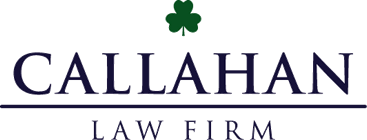
Kansas Bankruptcy Law: Qualifying for Chapter 7 Bankruptcy

Consumers who need to file for individual bankruptcy have two main options: Chapter 7 or Chapter 13 bankruptcy. Which one is best for you depends on your individual circumstances, including the type of debts you hold, your assets and wealth, your income, and what property you need to hang on to as you move through the bankruptcy process. A qualified bankruptcy attorney can help you sort through these factors and determine which type of bankruptcy would be recommended for your situation. There are also certain eligibility criteria spelled out in state law that come into play. This article will explain what is involved in qualifying for Chapter 7 bankruptcy in the state of Kansas.
How Chapter 7 Bankruptcy Works in Kansas
A Chapter 7 bankruptcy, also called a “straight” bankruptcy or “liquidation” bankruptcy, is ideal for people who have little in the way of assets combined with a lot of unsecured debt such as credit cards, medical bills, utility bills, and so on – debts that aren’t backed or “secured” by any collateral (your car serves as collateral on an auto loan, and your house serves as collateral on a mortgage loan).
The reason a Chapter 7 is also called a “liquidation” bankruptcy is that the bankruptcy court will require you to sell off assets in order to pay as much of the debts you as possible before the rest of your unsecured debts are wiped away when the bankruptcy is discharged. This is why people with significant assets who want to hang on to them might opt for a Chapter 13 bankruptcy that lets you keep those assets and creates a reasonable payment plan over the course of 3-5 years that allows you to get caught up as much as possible on your debt payments and then eliminates what’s left when the bankruptcy is discharged.
It’s also important to note that a number of different kinds of debt you might owe do not qualify for inclusion in Chapter 7 bankruptcy. These typically include alimony, child support, student loans, debts based on fraud, certain taxes, and certain items charged. A qualified bankruptcy attorney can help you understand which of your debts are “non-dischargeable” and will not qualify for inclusion when you file Chapter 7 bankruptcy.
Property Exemptions When Qualifying for Chapter Bankruptcy in Kansas
The bankruptcy courts and laws also recognize that in a Chapter 7 bankruptcy they can’t force you to sell off property you need to survive. In other words, some of your property will be “exempt” and won’t have to be liquidated (sold) to pay off some or all of the debts you owe.
For example, let’s assume you want to keep your house and your car, both of which are financed through loans. What you’ll do to not include them in the bankruptcy is called “reaffirmation” where you make a commitment to those lenders to maintain your payments on those debts so you can have a place to live and a car to drive. But in order to reaffirm those debts, you have to be up-to-date on those payments. If you’re behind on secured debts you want to keep, you’ll have to catch up in order to reaffirm them in the bankruptcy.
According to the bankruptcy laws in the state of Kansas, below are the two most common exemptions that people want to know about when they file Chapter 7 bankruptcy:
-
Homestead: “Real property or mobile home you occupy or intend to occupy to unlimited value; property cannot exceed 1 acre in town or city, 160 acres on the farm.” The good news here is that for most people, you’ll have no problem keeping your home because its value doesn’t even come into play. The bad news is that if your home is situated on a lot bigger than an acre in a town or city, you could be forced to sell your home in order to pay off some or all of your debts.
-
Motor Vehicle: You can exempt up to $20,000 of equity in your car (or an unlimited amount if the vehicle has been modified to accommodate a disability). In most cases, this means people will get to keep their vehicles. To find out your equity in a vehicle, you take the car’s value and subtract from that value what you still owe on the car loan. If you’re “upside-down” or “underwater” on your car loan, meaning you owe more than the vehicle is worth, you don’t have any positive equity to protect at all, so you don’t have to worry about it. As long as you keep current with your car loan payments, you can reaffirm the debt and keep your car.
There are a number of other exemptions for all sorts of other assets such as insurance payments, pensions, public benefits, wages, and various kinds of personal property. A qualified bankruptcy attorney will help you determine which of these exemptions apply to you file Chapter 7 bankruptcy.
